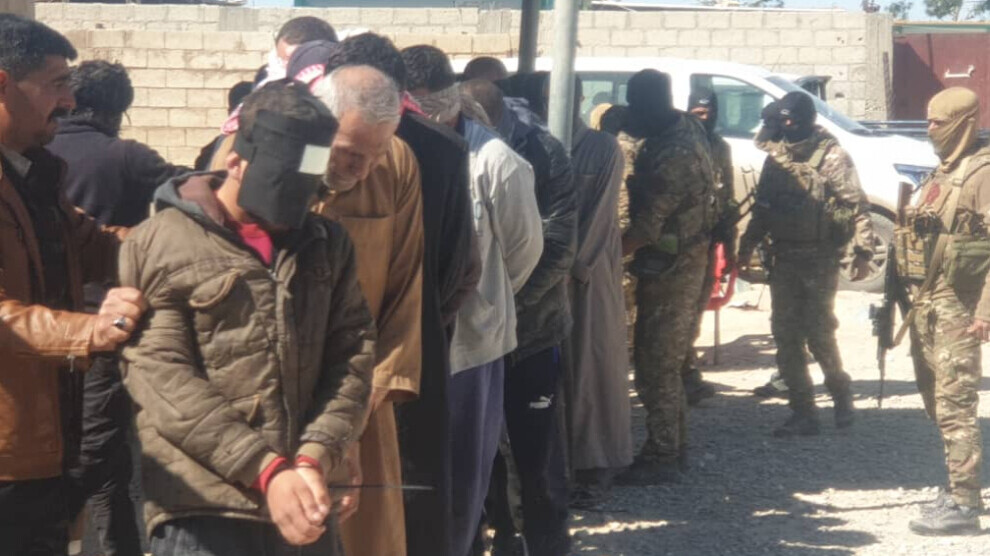23 ISIS members captured in the operation in Hol Camp
During the operation launched by the Northern and Eastern Syrian Internal Security Forces in the Hol Camp, 23 ISIS members have been captured.
During the operation launched by the Northern and Eastern Syrian Internal Security Forces in the Hol Camp, 23 ISIS members have been captured.

The ‘Humanitarian and Security Operation’ launched by the North and East Syrian Internal Security Forces in Hol Camp on March 28 continues on its second day.
23 gang members have been caught by the security forces during the operation so far.
Among those captured are ISIS ringleader Ebu Ekrem Hashim Shilal who is in charge of military affairs in the camp, Ebu Muhammed Akil Resmil Hüseyin in charge of organization, Mersul Sami Muhammed from the Usame group and his brother Selam Sami Muhammed.
Al-Hol camp is considered one of the most dangerous places in the world and stands as a symbol of the refusal of the international community to take responsibility for ISIS families. Over forty people have been murdered in the camp since the beginning of the year. The camp housed 62,000 people including some refugees and tens of thousands of family members of ISIS jihadists from 52 nations. The camp has long been difficult to control.
Thousands of Hol residents are ISIS supporters or former members who were captured by the Syrian Democratic Forces in the course of the last ISIS bastion, Baghuz, in early 2019. Around 93 percent of those in the camp are women and children. The situation is very difficult due to the lack of help from the international community. Only a few people have so far been returned to their home countries.
Camp Hol is home to around 27,000 minors, many of whom are children of ISIS mercenaries. In January the United Nations warned against their exploitation by ISIS and called on the countries from where the parents are from to take them back. The head of the UN Office for Combating Terrorism, Vladimir Voronkov, described the situation in the camp as one of the "most pressing problems in the world today". The 27,000 minors in Hol, many of them under the age of twelve, remain “stranded and left to their fate”, vulnerable to exploitation by ISIS and at risk of radicalization within the camp. The responsibility for them lies not with Syria or the forces that control the camp and other camps in the region, but with their home countries.
RELATED NEWS: